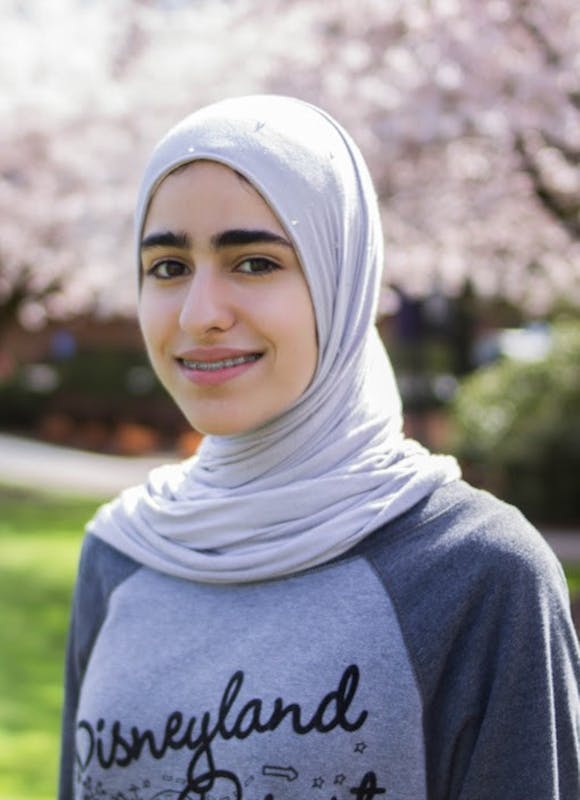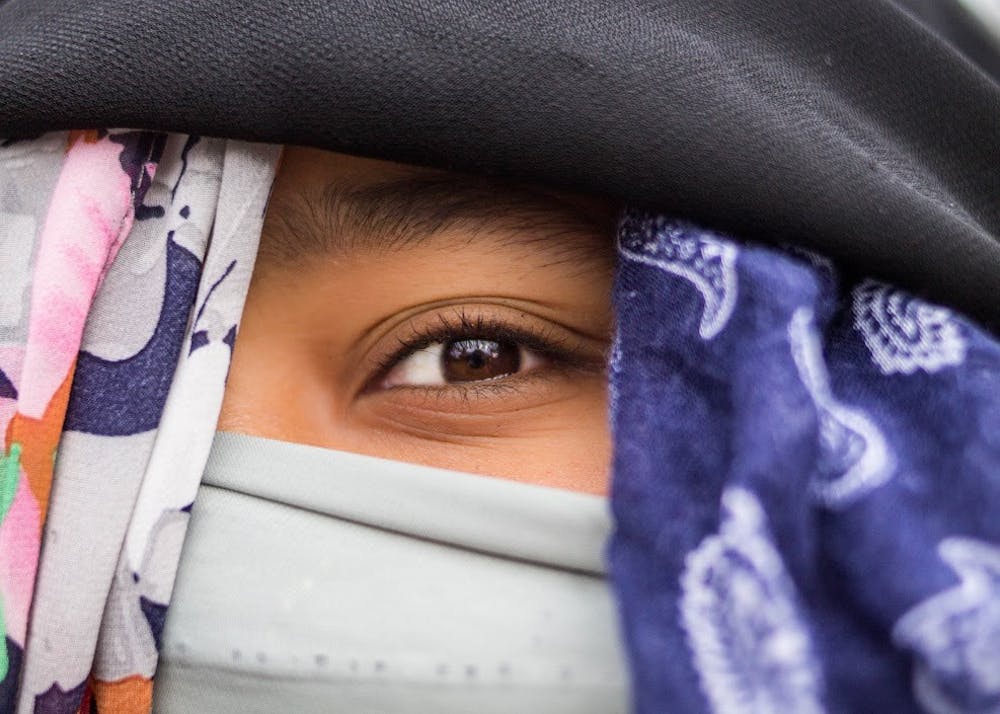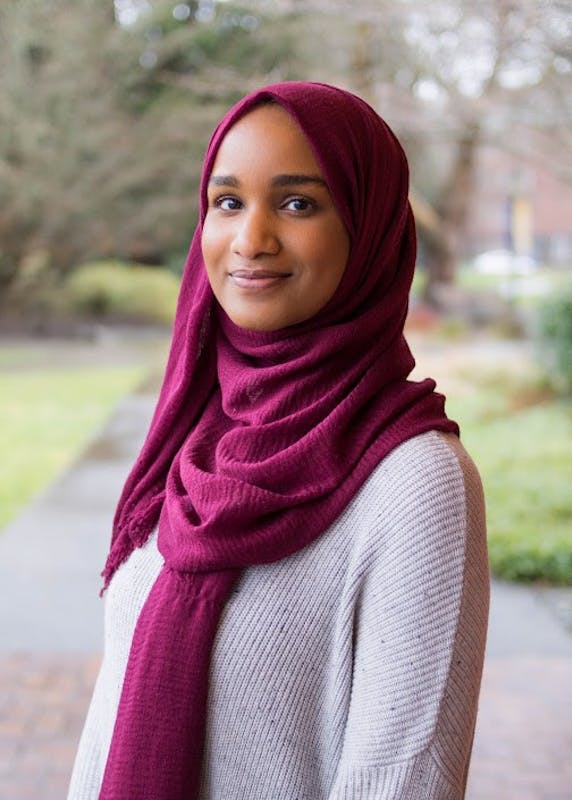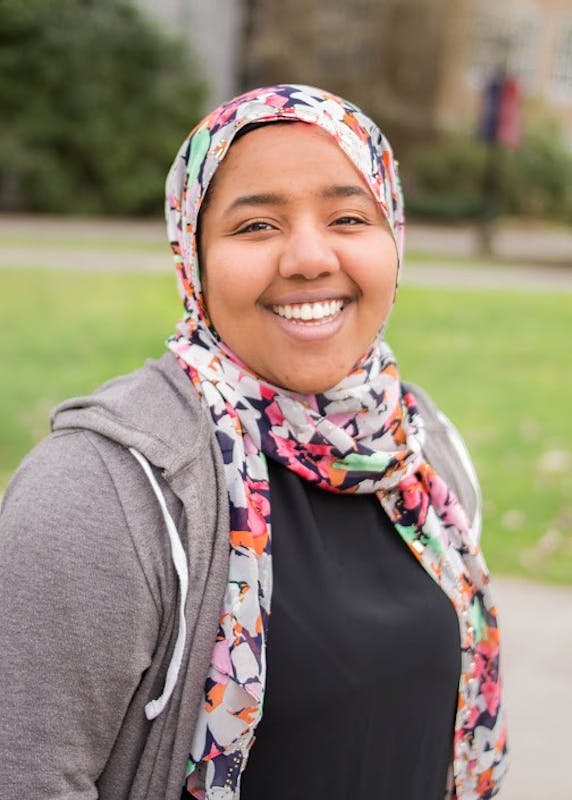Muslim women answer: 'What does the hijab mean to you?'
The hijab is a head covering, generally a veil or a scarf, worn in public or in the presence of non-familial adult males by some Muslim women.
The hijab is an often misunderstood religious and cultural symbol and custom. It's also a visual representation of a woman's religious affiliation at a time when, according to the Center for American-Islamic Relations, there are even more crimes against Muslims today than there were shortly after the Sept. 11, 2001 attacks. Some have also felt threatened by President Trump's attempt to ban immigrants from several majority Muslim countries, and the increasing prevalence of alt-right news site Breitbart.
Several Muslim women at UP told The Beacon that although there are few people on campus who wear the hijab, they rarely get questions from other students about the custom. So we invited them to answer, in their own words, "What does the hijab mean to you?"
Here are their answers:

Lujain Al Ali, freshman civil engineering major
"The word 'hijab' means 'to cover'. And it’s usually that girls wear it to preserve their beauty, so not everybody gets to see it. I wear it because I feel like it sort of protects me. It’s who I am, it’s a part of me now. Sometimes when I feel like I want to try to take it off and walk outside, I feel like I have no head on. It feels really weird.








